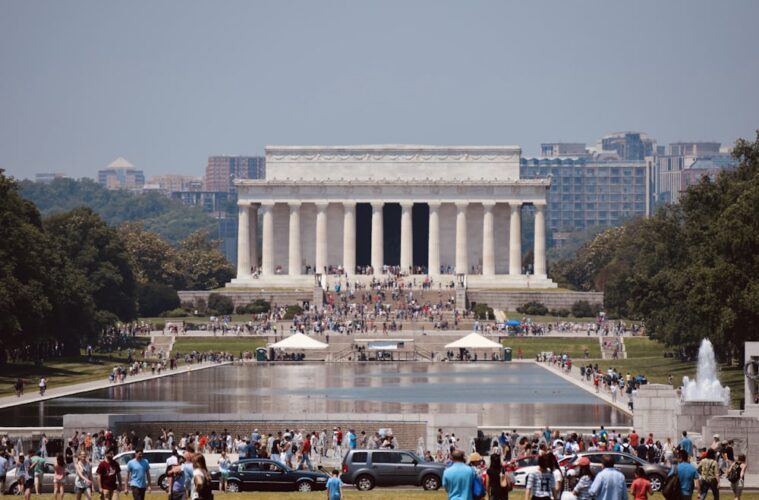As cannabis continues to gain further normalization, The Last Prisoner Project (LPP) and its allies announced they will take over Washington D.C. for 420 Unity Day, in what is expected to be one of the largest mobilizations of cannabis advocates ever, on April 18.
A wide coalition of cannabis advocates, industry and grassroots organizations are expected to be in Washington D.C. for a 420 Unity Day of Action. They include members of the Marijuana Justice Coalition (MJC) including Drug Policy Alliance, Students for Sensible Drug Policy, NORML, Veterans Cannabis Coalition, Parabola Center; members of the Cannabis Freedom Alliance (CFA) Reason Foundation, and Law Enforcement Action Partnership; and industry groups like National Cannabis Festival, National Craft Cannabis Coalition, National Cannabis Industry Association (NCIA), Minority Cannabis Business Association (MCBA), Indigenous Cannabis Industry Association (ICIA), Asian Cannabis Roundtable and National Association of Black Cannabis Lawyers (NABCL).

The announcement noted advocates are hoping to put public pressure on Congress and the President to take action on the full descheduling of cannabis and the necessary retroactive relief measures.
“We need an all-hands-on-deck approach to ending the unjust war on our community, which means leveraging incremental wins, as we build toward bigger, bolder reforms,” said Sarah Gersten, LPP executive director and author of the memo. “While rescheduling alone will not offer retroactive relief, it would be a historic shift in policy, and we must be ready to push open the door of reform when it happens. We have outlined several ways the administration can achieve real relief and add substance to the President’s mostly symbolic reforms so far.”
These types of days of action are critical to support the people who are working to reform marijuana laws at the federal level daily. It reminds people on the hill how important the cause is. Both the advocates and their allies in Congress get a boost. The Drug Policy Alliance has been a core part of that effort for decades.
“We are thrilled to participate in this day of action to underscore the urgency of marijuana justice. We call on Congress to pass comprehensive marijuana reform legislation that deschedules marijuana and provides an equitable framework for marijuana regulation. At this critical juncture for federal marijuana reform, our communities will not be sidelined,” said Maritza Perez Medina, director of federal affairs for the Drug Policy Alliance, the leading member of the Marijuana Justice Coalition. “In addition, we implore President Biden to use his executive authority to bring people home from prison immediately and end some of the most egregious harms of marijuana criminalization.”
The coalition includes former members of the law enforcement community who have worked to end the war on drugs.
“I’ve spent the past 13 years working to reform the criminal justice system, starting with the War on Drugs,” said Lt. Diane Goldstein (Ret.), executive director of the Law Enforcement Action Partnership. “And after years of criminalization, it’s time that we deschedule marijuana entirely so we can stop wasting law enforcement resources that could be better spent elsewhere, and make improvements in police-community relations to foster more public trust.”
The cannabis industry also will be out. NCIA noted it supports ending the criminalization of the industry by removing cannabis and THC from the federal Controlled Substances Act altogether.
Michelle Rutter Friberg, director of government relations for NCIA, said, “However, we also support moving cannabis from Schedule I to III as a first step in the right direction, because the federal government would publicly acknowledge the medical value of cannabis and remove the punitive tax burden imposed by Internal Revenue Code 280E on state-legal cannabis businesses.”
Among many other organizations supporting the effort, the oldest cannabis reform organization in America also will be in the mix.
“It is well past time that cannabis was removed from the Controlled Substances Act scheduling entirely and treated more like other substances that most Americans can utilize responsibly without fear of legal penalties, discrimination, or loss of civil liberties.” said Morgan Fox, NORML political director. “While moving cannabis out of Schedule 1 is symbolically important, anything short of descheduling merely perpetuates the conflict between state and federal laws, continues to punish individual consumers and patients, and does nothing to facilitate the study or regulation of cannabis in a fashion that reflects the will of the supermajority of Americans who want to end federal prohibition.”
Keep an eye out for more details on the festivities.
Advertising disclosure: We may receive compensation for some of the links in our stories. Thank you for supporting LA Weekly and our advertisers.

